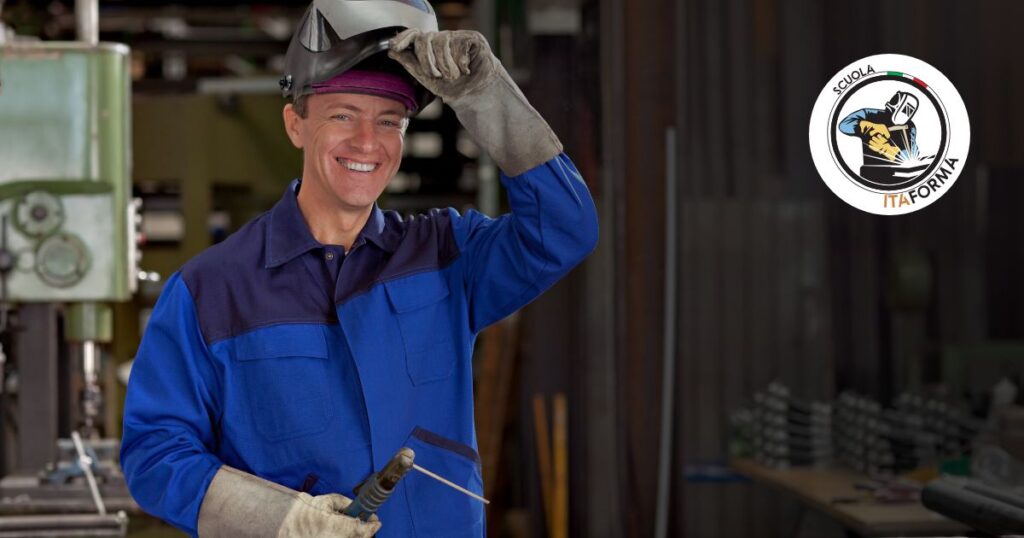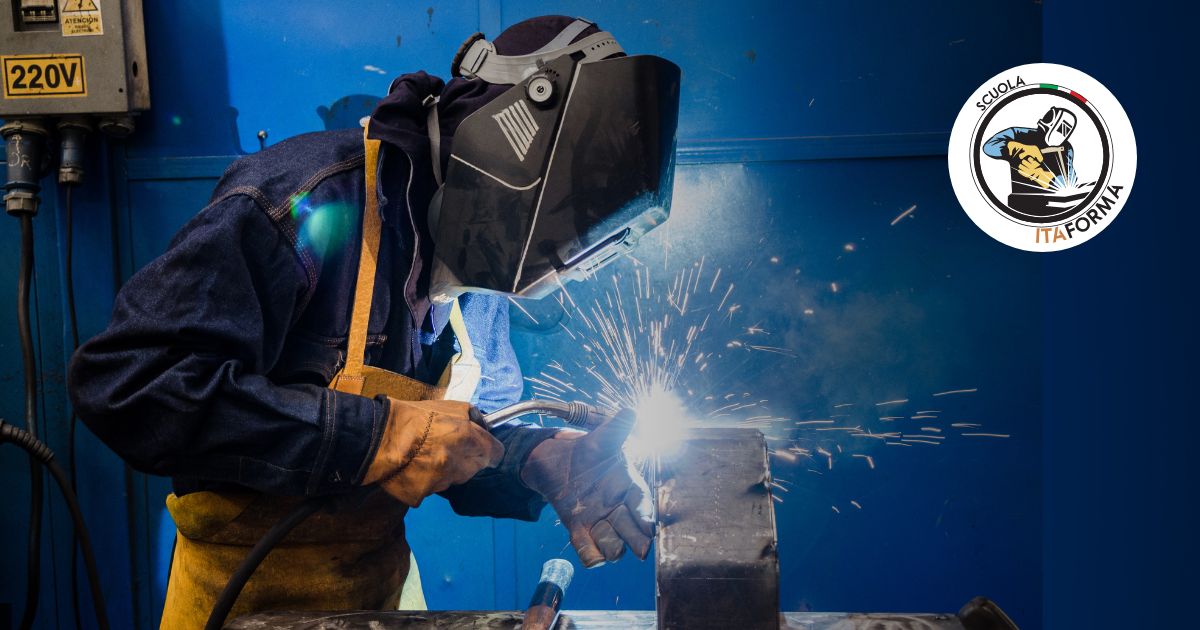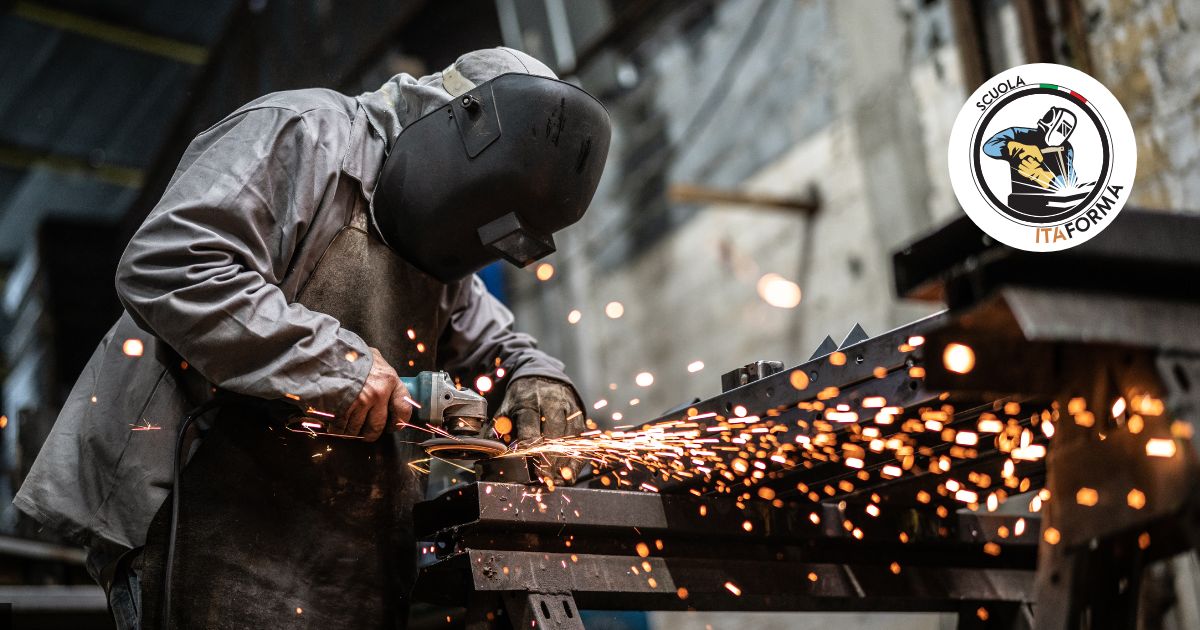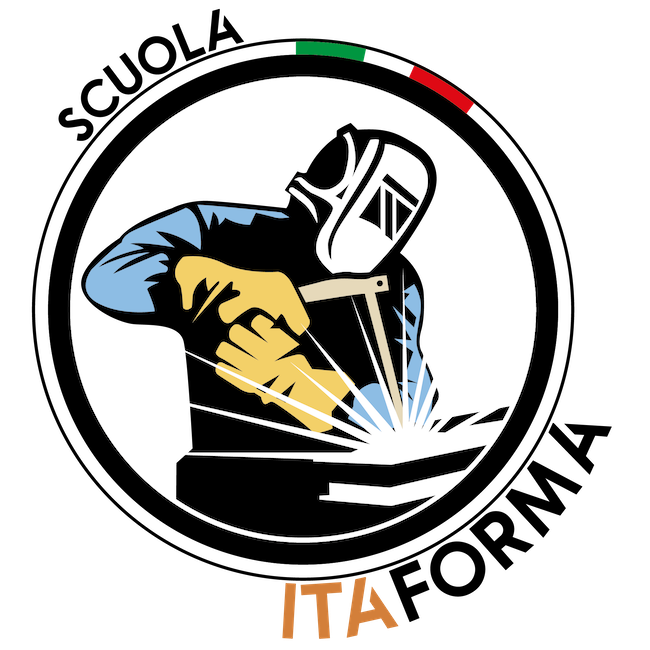Table of Contents
- Why Welding is in Demand in Ireland
- Skilled Trades Shortage
- Key Industries
- Career Paths for Welders in Ireland
- Entry-Level Positions
- Skilled and Specialist Roles (Semi-Experienced)
- Advanced and Supervisory Positions
- Salary Expectations for Welders in Ireland
- Average Salaries by Experience Level
- Factors Influencing Pay
- Career Growth and Earning Potential
- How to Access Welding Jobs in Ireland
- Importance of Proper Training
- Certification Requirements
- How Itaforma Prepares You
- Conclusion
Welding is one of the most in-demand skilled trades in Ireland.
With a growing industrial sector, ongoing infrastructure projects, and a focus on renewable energy,
qualified welders enjoy a wide range of job opportunities, competitive salaries, and long-term career prospects. Whether you are just starting out, looking to upskill, or considering a career change, understanding the job market is crucial to planning a successful path. The key to unlocking these opportunities is professional training that combines theory, hands-on practice, and certification—exactly what
Itaforma (based in Italy) offers.
1) Why Welding is in Demand in Ireland
Skilled Trades Shortage
Ireland faces a
significant shortage of trained welders. Employers often report difficulty finding qualified professionals for ongoing projects in construction, shipbuilding, and industrial manufacturing. This shortage translates into
strong job security, higher starting salaries, and more career choices for those entering the field. Welding is not just a trade; it’s a skill that is
portable across industries and borders, giving welders an advantage in an increasingly mobile and competitive job market.
Key Industries
Welders are indispensable in several high-demand sectors:
- Construction: From bridges and high-rise buildings to industrial facilities, welders are critical for structural projects.
- Shipbuilding and Marine: Welding expertise is essential for building and maintaining ships, offshore platforms, and maritime infrastructure.
- Manufacturing: Industrial equipment, machinery, and large-scale fabrication projects rely on skilled welders for precision and quality.
- Renewable Energy: Wind turbines, solar installations, and energy infrastructure projects require welders with specialised knowledge and skills.
These industries not only
offer stable employment but also provide a pathway to
specialised roles with higher pay and international opportunities.
2) Career Paths for Welders in Ireland
Entry-Level Positions
Since 2014, all welders in Ireland are
required to hold proper certification. Entry-level or junior welders typically
work under the guidance of a senior welder, learning the workflow, gaining hands-on experience, and understanding the practical demands of the trade. This period allows beginners to
acquire foundational skills safely while observing professional practices on real projects.
Skilled and Specialist Roles (Semi-Experienced)
Skilled or semi-experienced welders already have
practical experience and are capable of
working independently. They may specialise in processes such as TIG, MIG, Stick welding, or specific fields like pipefitting and structural steel. These welders are valued for their ability to
deliver high-quality work without constant supervision, often taking on more challenging tasks and responsibilities.
Advanced and Supervisory Positions
Advanced roles include
supervisors, foremen, welding inspectors, and project managers. Professionals in these positions oversee teams, ensure
quality control, manage projects, and coordinate complex operations. These positions require both extensive
practical experience and
formal certification, as well as leadership and organisational skills.
3) Salary Expectations for Welders in Ireland
Average Salaries by Experience Level
If you are searching for
how much do welders make in Ireland, salaries vary depending on experience, industry, and certification:
- Entry-Level: €25,000 – €35,000 per year, suitable for beginners completing foundational training. Junior welders typically work under the guidance of a senior while gaining practical experience.
- Intermediate/Skilled: €35,000 – €50,000 per year. Welders with some experience and certification, capable of working independently, often in specialised processes.
- Experienced/Certified Professionals: €50,000 – €65,000+ per year. Those in supervisory, inspection, or advanced roles can earn top-tier wages.
For anyone wondering
how much does a welder earn in Ireland, these figures provide a realistic picture of earning potential at different career stages.
Factors Influencing Pay
Several factors affect
how much welders make in Ireland:
- The type of welding process (TIG, MIG, Stick)
- The industry sector (construction, shipbuilding, manufacturing, renewable energy)
- Professional certification and qualifications
- Experience level and proven competence
- Project complexity, location, and demand in specific sectors
Career Growth and Earning Potential
Welders who pursue recognised certification,
gain hands-on experience, and expand their technical skills can access
higher-paying roles, specialised positions, and international opportunities. Structured training programmes like
Itaforma are essential for maximising career growth and ensuring you reach your full earning potential.
4) How to Access Welding Jobs in Ireland
Accessing professional welding jobs requires
more than basic theory or home practice. To succeed, aspiring welders need
structured training, hands-on experience, and recognised certification.
Importance of Proper Training
Structured, intensive training ensures that students acquire
both theoretical knowledge and practical skills, covering:
- Welding processes and techniques
- Safety standards and workplace procedures
- Reading technical drawings and documentation
- Preparing for certification
Without this foundation, it is difficult to meet employer expectations or achieve long-term career growth.
Certification Requirements
Many employers require
industry-recognised welding qualifications. Certification demonstrates competence, enhances employability, and allows access to
high-demand and high-paying roles in Ireland and abroad.
How Itaforma Prepares You
Itaforma (based in Italy) offers a
turnkey, professional solution:
- Intensive Practical Training: 8 hours of welding per day, 5 days per week, covering multiple processes and real-world scenarios.
- Live Theoretical Courses: On-site classes and over 30 hours of online lessons, accessible even after leaving the campus, to consolidate knowledge.
- Professional Campus Environment: Two workshops, eight overhead cranes, forklifts, welding cages, dozens of welding machines of all types, and an industrial hotel for accommodation and meals.
- Comprehensive Certification Support: Guidance through industry-recognised certifications, ensuring students are fully prepared to enter the Irish and European job markets.
With Itaforma, students gain
all the necessary skills, experience, and certification to access welding jobs confidently and start a
successful, well-paid career.
5) Conclusion
Welding offers
strong career opportunities in Ireland, with competitive salaries, diverse paths, and high demand across multiple sectors. However,
home practice or basic theory is insufficient for professional success.
Itaforma provides a
complete and serious solution, combining theory, intensive hands-on training, professional equipment, and certification guidance. Students graduate ready to enter the workforce, confident in their skills, and fully equipped to access
welding jobs in Ireland, Europe, or internationally. 👉
Ready to launch your welding career? Join
Itaforma today and gain the knowledge, practical experience, and certification needed to succeed in the industry.






